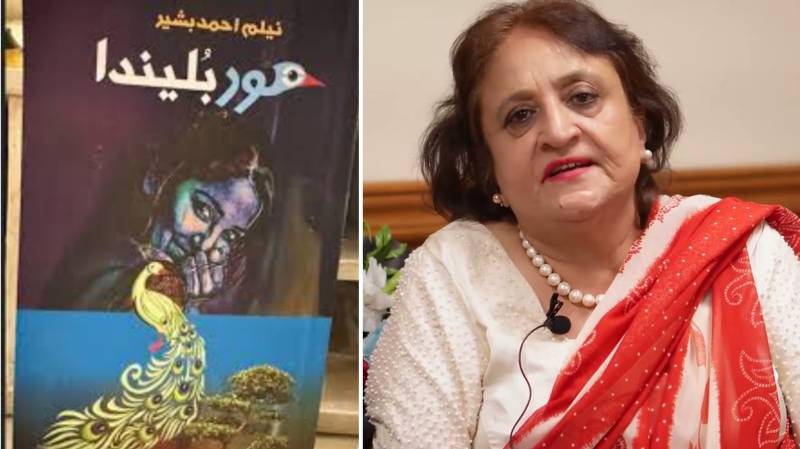
At last, I have in my possession the long-anticipated Punjabi novel Mor Bulenda, penned by Neelum Ahmad Bashir, who has distinguished herself as a writer in both Urdu and Punjabi, showcasing a remarkable vision and creative sensibility. She is the eldest member of a creative family comprising of writers, performers and cultural enthusiasts.
Renowned for her impactful presence in the contemporary literary landscape, particularly in Urdu, she fearlessly and boldly addresses contentious subjects, striving to reveal the harsh truths of our society. Hearty applause is deservedly extended to Neelum, who emerges as a passionate advocate for female empowerment.
Neelum has an impressive literary repertoire that includes six short stories titled Neelahten, a book of essays, two travelogues, and an Urdu novel along with a recent Punjabi novel published by Kitaab Trinjan. With a total of 12 published books, her remarkable body of work delves into sensitive and intricate matters concerning the female psyche.
The novel Mor Bulenda draws its title from Baba Bulleh Shah's Sufi kalam, adding radiance to the constellation of great mystical poets. The narrative unfolds with four central characters, accompanied by their pertinent sub-characters, exploring their emotions, hardships, and the poignant irony of life.
“Tere ishq ti jungi wigh Mor Bulenda”
“Sanu qibla te Kaabah sona yaar dasinda”
“Tere ishq nachaya kar thaiya thaiya”
The author skilfully intertwines all the characters into a well-crafted narrative, creating a believable, intriguing, reality-based and emotionally charged story that carries a touch of sensuality
Amongst the groves filled with passion, the echo of a peacock's call inspires the lover to choreograph a dance, caught in a trance. Baba-ji's verses illuminate a profound comprehension of human nature and the unyielding pursuit of divine love. Neelum, inspired by his spiritually profound poetry and lyrical beauty, immerses herself in the waves of devotion, crafting an emotional love story. Her potent expressions evoke strong sentiments in the reader.
A well-knit plot with well-connected theme which revolves around four main female characters; Alam Ara, a singer, gets married to a British man William Graham in the pre-Partition era. She gives birth to a beautiful daughter Daisy Rania, who loses her father when he returns back to his homeland after decolonisation. Rania gets married to a Sindhi wadera named Shehbaz Talpur, and becomes his second wife. After his death, she also expires in a plane crash and leaves a beautiful daughter alone, named Sanam, along with her maid.
Sanam settles down in Lahore and falls in love with a filmmaker Rao Sultan, who is already married to a Bengali girl. Within the embrace of love, she gives birth to a lovely daughter named Sawera, who endures a lifetime of hardship, orphaned by parents who are alive yet seemingly departed. In the end, she finds her mother but remains unable to accept her. The struggle comes to a close with her moving towards divine love.
The author skilfully intertwines all the characters into a well-crafted narrative, creating a believable, intriguing, reality-based and emotionally charged story that, in some aspects, carries a touch of sensuality, mirroring common human experiences. Neelum adeptly depicts both male and female characters with equal depth and insight.
When it comes to matters of the heart, female characters exude strength and determination, shaping their own destinies. Even the male characters, portrayed as being capable of balance and virtue, face no bias or prejudices in Neelum's narrative.
Another noteworthy character is the bonsai plant, serving as an impressive and iconic symbol of harmony, peace and strength. It stands as a loyal companion across four generations. Neelum illustrates the desire of every woman for a love that is pure, genuine and completely compassionate, yet laments the absence of a passionate soulmate. Neelum's endeavour appears to resonate successfully with Baba jee's Kalam, and I detect a glimpse of Donne's love theory as well.
According to John Donne,
"Soul cannot exist without a body as spiritual love is improbable without bodily love."
Notwithstanding a few minor errors, Mor Bulenda is a delightful novel. It offers great entertainment, with a central message of love and bonding. I highly recommend it to readers.

